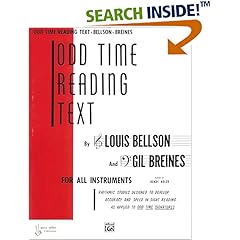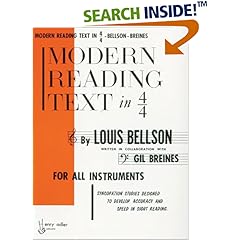What is a good euphonium/trombone method book to have to work on various time signatures? I have the Bowman/Alessi Arbans, which I find to be really help with developing articulation, finger dexterity, and flexibility studies but not enough on time signature exercises.
Thanks!
euphonium method book
- elimia
- 3 valves

- Posts: 359
- Joined: Wed Apr 21, 2004 9:30 pm
- Location: Hermitage, Tennessee
- The Impaler
- 3 valves

- Posts: 312
- Joined: Fri Mar 19, 2004 9:28 am
- Location: Carrollton, GA
- Contact:
Not sure exactly what you're looking for, but try Louis Bellson's rhythm books. Pat Sheridan turned me on to these, and they're spectacular for developing sight-reading and rhythm skills!




Cale Self
Assistant Professor of Music
Acting Director of Bands & Instructor of Low Brass
University of West Georgia
Carrollton, GA
Assistant Professor of Music
Acting Director of Bands & Instructor of Low Brass
University of West Georgia
Carrollton, GA
- Kevin Miller
- bugler

- Posts: 227
- Joined: Fri Mar 19, 2004 6:33 am
- Contact:
Check out http://hickeys.com under trombone methods. I found two "changing meter" studies; one by Davies and one by Stevens. I don't have personal experience with either book, but they may be what you are looking for.
Kevin Miller
Private Teacher/Freelancer
Tulsa Opera Orchestra
Bravo Brass
Private Teacher/Freelancer
Tulsa Opera Orchestra
Bravo Brass
- JB
- pro musician

- Posts: 704
- Joined: Fri Mar 19, 2004 1:04 pm
elimia wrote:I'm looking for books that have a lot of exercises that aren't almost all in 4/4, 2/4, or 6/8 time. I'll take a look at some of the suggestions so far.
 I would strongly endorse the Encyclopedia of Reading Rhythms by Gary Hess.
I would strongly endorse the Encyclopedia of Reading Rhythms by Gary Hess.It is a text and a practical (applied) workbook combined, and is usable with any instrument or combinations of instruments. This is because it is written purely as rhythms (like on a percussion part) without a specific clef or pitches. I have used this book with university students and all the way down to beginning players (with all levels in between). It can be used for one-on-one teaching, or in a group/class setting Explains the various time signatures, how to figure out what they mean, and then provides many pages of graduated rhythm study exercises for each topic. Starts at the simple and works through to the complex.
[Looks like you can test drive one for about $13.]
http://www.amazon.com/gp/product/079357 ... e&n=283155
The "blurb" from the site is accurate:
Book Description
A comprehensive guide to: notes, rests, counting, subdividing, time signatures, triplets, ties, dotted notes and rests, cut time, compound time, swing, shuffle, rhythm studies, counting systems, road maps and more! "Provides a Britannica-like benefit to players whose reading skills are underdeveloped or in need of a good polishing."
- Rich Watson, Modern Drummer magazine
- ufoneum
- 3 valves

- Posts: 385
- Joined: Fri Feb 04, 2005 7:58 pm
- Location: Evansville, IN
One of my favorite books for rhythm is the Rhythmic Etudes for Trombone by Marcel Bitsch. There are some rhythms that are so tricky you will have to look at it for a good-long-while to play it correctly.
It is available from all the major retailers, but it is Alphons Le-Duc, so be prepared to sell a child to cover the cost.
- Pat Stuckemeyer
It is available from all the major retailers, but it is Alphons Le-Duc, so be prepared to sell a child to cover the cost.
- Pat Stuckemeyer
Assistant Prof. of Music - Kentucky Wesleyan College (Owensboro, KY)
Buffet Crampon and Besson Performing Artist
Conductor, River Brass Band (Evansville, IN)
Treasurer, International Tuba Euphonium Association
facebook.com/stuckemeyer
patstuckemeyer.com
Buffet Crampon and Besson Performing Artist
Conductor, River Brass Band (Evansville, IN)
Treasurer, International Tuba Euphonium Association
facebook.com/stuckemeyer
patstuckemeyer.com